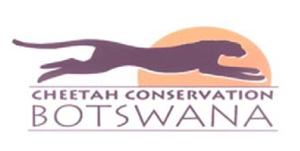
The Plight of the Cheetah
Evolving over 4 million years ago and able to employ breathtaking acceleration to achieve speeds of around 110 km/h, the oldest of the African 'big cats' and the fastest land mammal on Earth is today engaged in a race against extinction.
The cheetahs distinctive physiology limits its ability to compete with healthy populations of more powerful predators in reserves and national parks. Cheetah numbers can be suppressed in these protected areas, but their otherwise successful occupation of marginal lands (with fewer competing predators) is now jeopardized by regular conflict with rural communities.
Rural communities are almost completely dependent upon livestock farming for their livelihoods. The common perception that predators are having a significant impact upon rural welfare can lead to indiscriminate retaliatory killings. Wildlife/human conflict has had a devastating impact throughout the world and it is an issue largely responsible for the loss of 90% of the cheetah population(around 90,000 individual cats)in the course of just a single century. The 10,000+ wild cheetah population in Africa today is classified as 'Vulnerable' in the IUCN's Red Data List.
Now Africa's most threatened 'big cat', the cheetah population numbers are of an insufficient level to cope with on-going indiscriminate removal, either in retaliation for livestock losses or poaching for illegal trade. The cheetah is formally protected by law in Botswana and internationally, by the Convention on International Trade in Endangered Species (CITES).
Cheetah Conservation Botswana (CCB)
The project was formed in 2003 to address the threat to the nation's cheetah population. The major challenge for the project, funded by grant aid and donor support, is one of improving community perceptions towards predators and ensuring that retaliatory killings do not continue to threaten cheetah numbers, while, at the same time, supporting and protecting rural community welfare. Your generous support is already helping us to achieve that.
Only by working together with communities who live side-by-side with predators, with initiatives tailored to meet their needs and priorities, do we hope to foster the attitudes of coexistence that will see cheetahs remain as an essential component in this remarkable ecosystem and as a flagship species for the rich biodiversity of Botswana.
Rebecca Klein, rebecca(a)cheetahbotswana.com